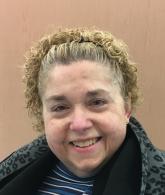Learning to cope
Since I became disabled at 19, my anxiety level has gone up. Even though I was considered "high strung" growing up, I never thought that was a malady. I was aware that I thought, felt and saw things differently than others. A few months after I was disabled, I experienced baldness in spots and my physician prescribed Valium for what he said was anxiety.
I do not know if I needed medicine. I do know I was frustrated because there were many things I could no longer do for myself. After my spinal cord injury, my right side was partially paralyzed. I thought I had retained strength on my left side. But over time, after falls, and surgery, my left side got weaker. I never considered I would be able to do less as I grew older.
I tried to tamp down my attention to detail. When my mother was my caregiver, she suggested I tell her everything I needed at once in order to save her trips. So, I memorized lists of things for projects. My mother appreciated me not constantly asking for things, but some caregivers did not appreciate my laundry list of needs. Many times, I had to let go of some needs. That was more difficult when I was younger. As I have gotten older, I know I have to give up things to maintain a degree of independence.
When I moved to a nursing home at age 47, my life was turned upside down. I was always very precise about everything, but I tried to lower my standards. That meant I had to change my own self-identity. I wondered if giving up particular needs or desires over a period of time can cause our mental faculties to decline.
I wonder if the brain just shuts down or powers off when it realizes we are not going to react to stimuli. For example: if my nose itches, I cannot scratch it. If I put the call light on for an aide to scratch it, chances are it takes the aides a while and by the time they arrive, my nose may stop itching or I may forget what I needed. So, if I never get to scratch my nose, will it stop itching? I also wonder if my nose seldom itches because my brain knows that I never scratch it. In fact, I noticed my nose only seems to itch when an aide is in my room. Has my brain learned that my nose can only be scratched by someone else? Could my brain adapt its itching sensations?
Could adaptation of the brain also explain a phenomenon that has happened to most of us? I notice blood on my arm, but feel no pain. I look for the source of the blood and see a small skin abrasion. Then, all of a sudden, that spot hurts. Was the pain caused by visual recognition of the injury? Or did the scratch hurt before I observed the blood? If the scratch hurt before I saw the blood, was I ignoring it? I do not know the answer to that and wonder if anyone does.
Being constantly required to give up activities and pursuits can be devastating. I know from personal experience that continually ignoring, giving up or stopping activities can cause me to stop trying. Then I feel more isolated and disinterested in my surroundings, which I feel is the definition of depression.
I feel depression can only be treated successfully if those affected find ways to cope with the things they can no longer do, or what they must give up. Perhaps they need to develop more of a spiritual life or do things for others to allow their brain to feel positive stimulation.

Kathleen Mears is a long-time blogger who has been a nursing home resident for 21 years. She is an incomplete quadriplegic and uses a power wheelchair to get around. Her computer is her “window on the world.” This blog shares her thoughts and view of life as a nursing home resident as well as ideas of how it might be improved in the future.
Related Articles
Topics: Articles











